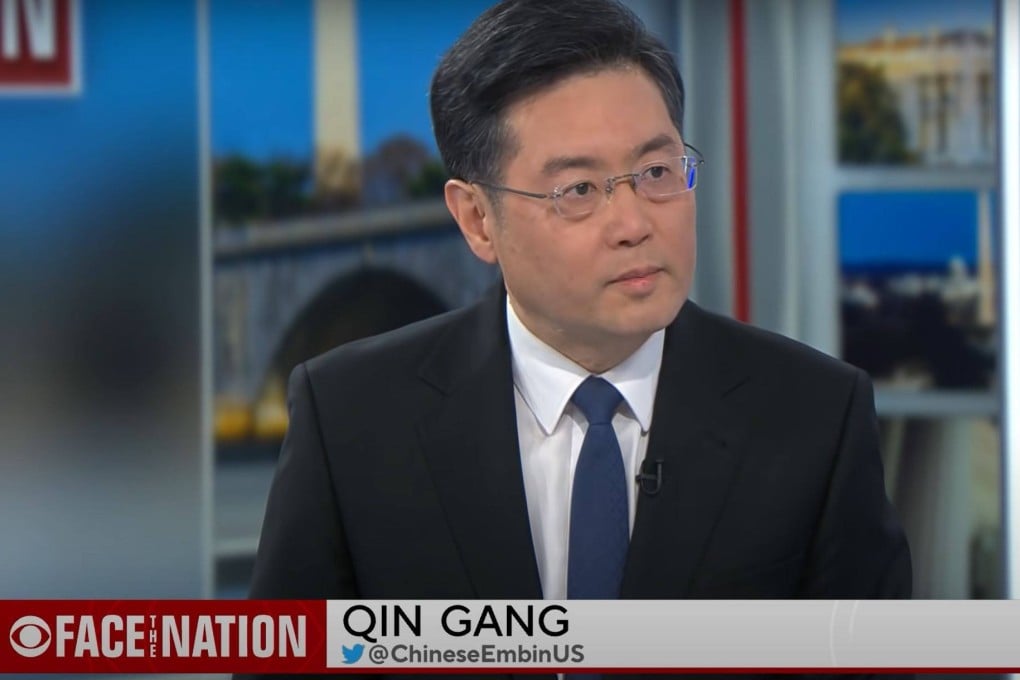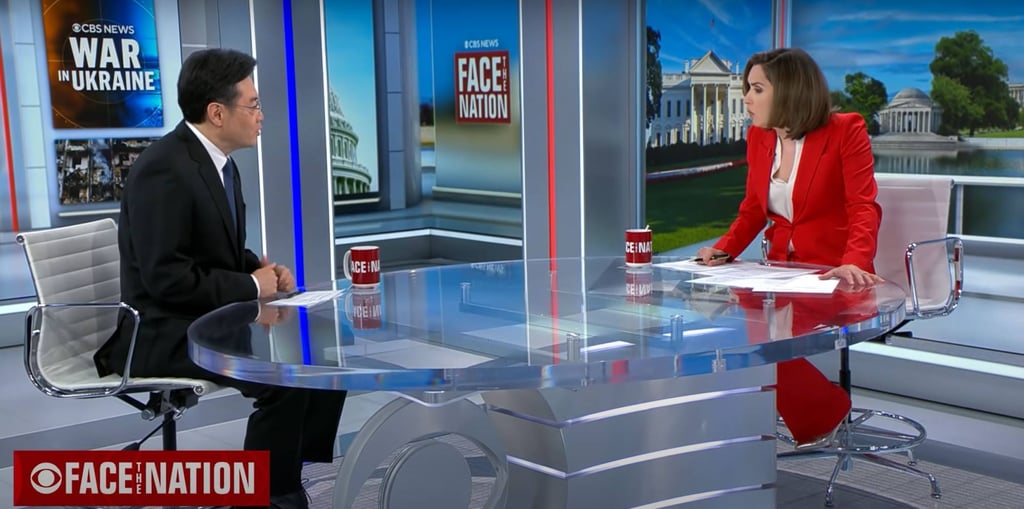Advertisement
As I see it | China, interrupted: Viral US TV interview held up as latest example of a hostile West on Weibo
- Qin Gang, China’s ambassador to the US, was interrupted more than 20 times during a nine-minute interview with CBS that has gone viral on Chinese social media
- Such combative tactics are not only disrespectful and unfair, they jeopardise an important channel to acquire greater understanding of Chinese points of view
Reading Time:2 minutes
Why you can trust SCMP
40

A video showing the Chinese ambassador to the United States being interrupted more than 20 times during an interview has convinced countless social media users in China that the West is uninterested in listening to their point of view.
The video, in which ambassador Qin Gang is interviewed about China’s position on the Russia-Ukraine conflict by host of CBS’s Face the Nation programme Margaret Brennan, has gone viral on Chinese social media – especially the microblogging site Weibo.
During the nine-minute interview on March 20, Qin was repeatedly interrupted by Brennan, who sought clarifications ranging from whether China would be sending money and weapons to Russia and whether Chinese President Xi Jinping would tell Russian leader Vladimir Putin to stop the invasion of Ukraine.

At certain points in the interview, Qin could not even get beyond saying “yeah, let me …” and “well …”.
Advertisement
Other guests who were interviewed by the media outlet on the same day – US Secretary of Defence Lloyd Austin and the Ukrainian Ambassador to the US Oksana Markarova – were “hardly interrupted”, as Chinese social media users noted.
One said Brennan was “behaving like a judge from beginning to the end” in the interview with Qin, while another, referring to the West, said: “they have never wanted to listen to us, they only wanted to lecture us”.
Advertisement
Brennan’s constant interruptions fed into a narrative in China that Western countries, led by the US, are out to contain the country’s rise and rein in its international clout.
Advertisement
Select Voice
Choose your listening speed
Get through articles 2x faster
1.25x
250 WPM
Slow
Average
Fast
1.25x
